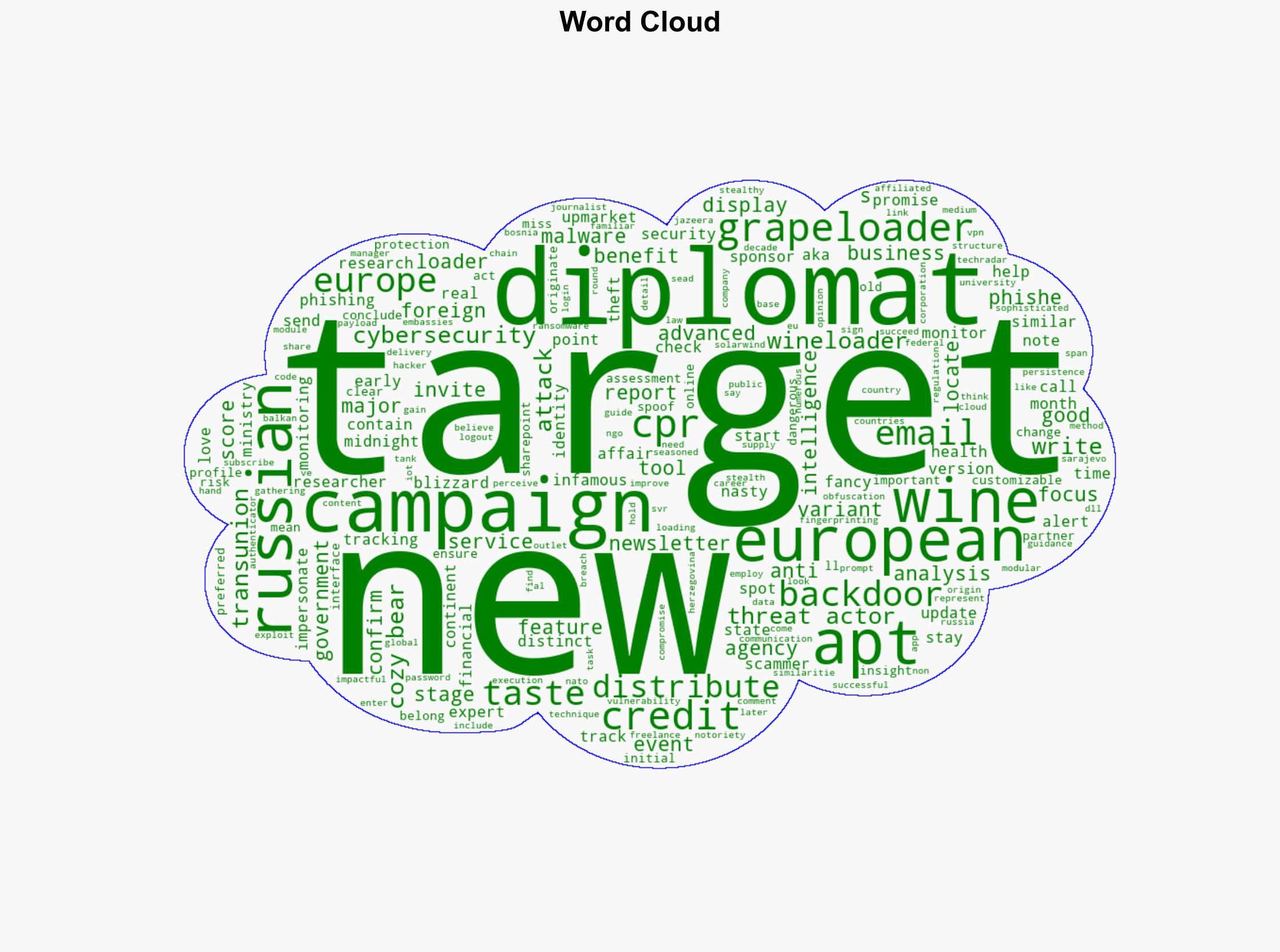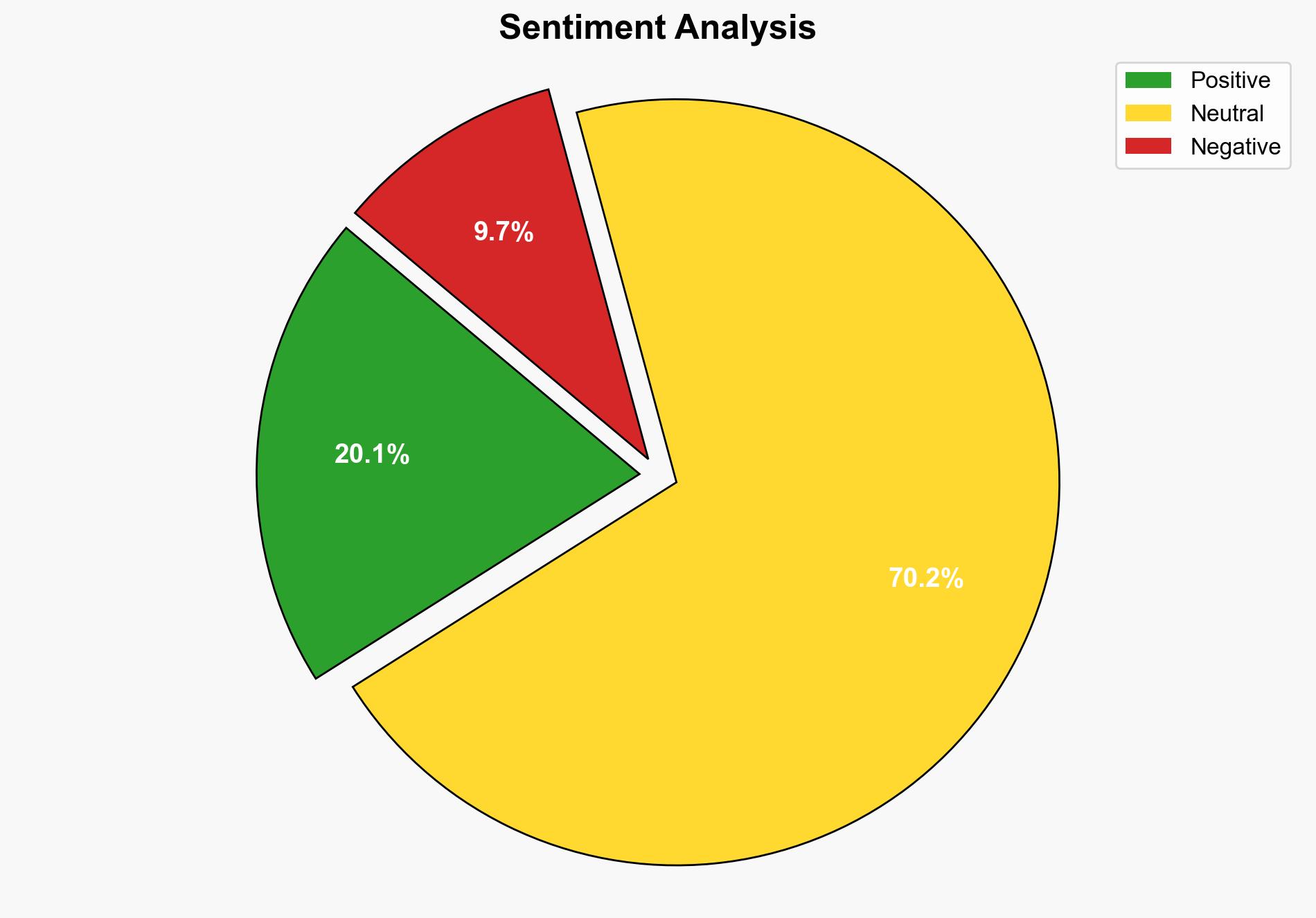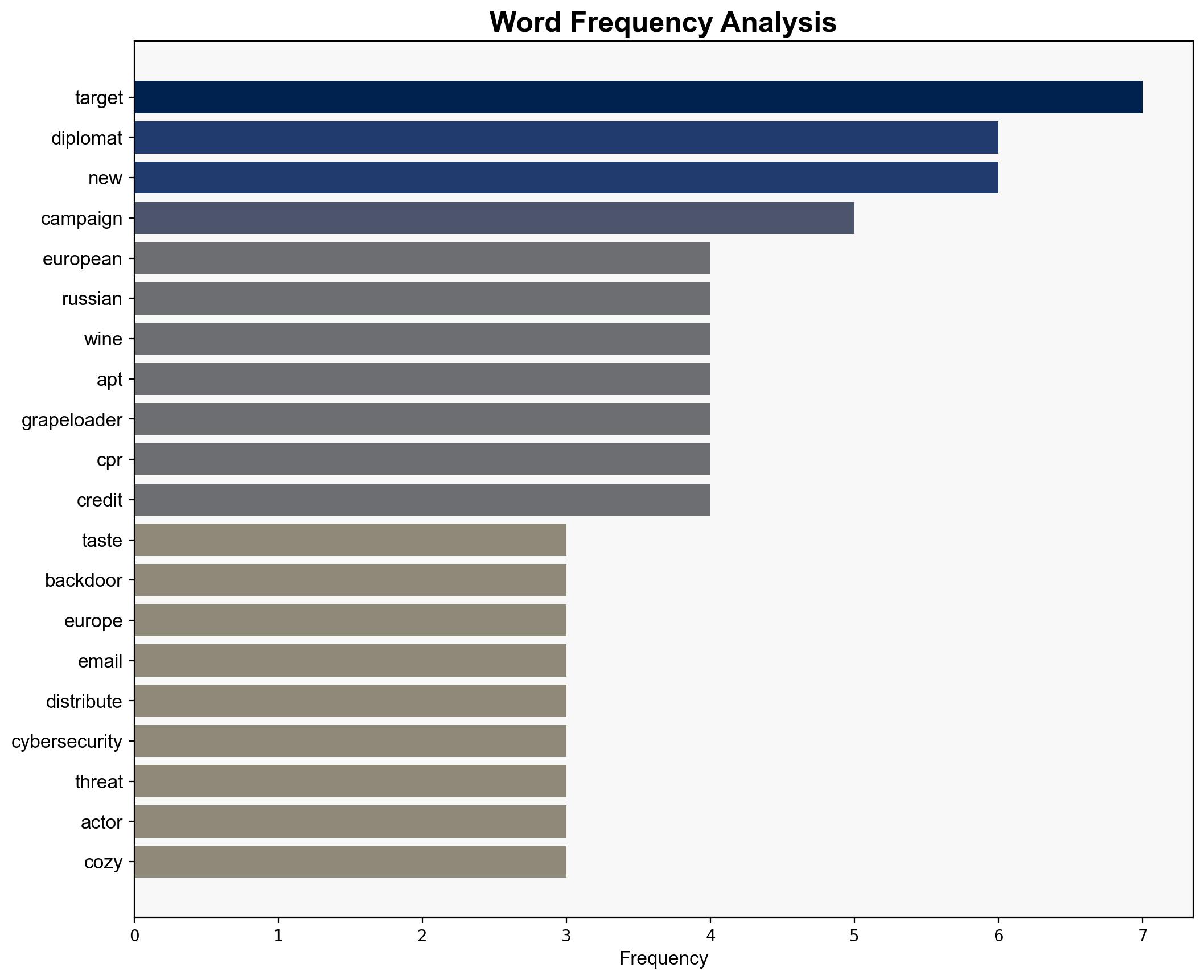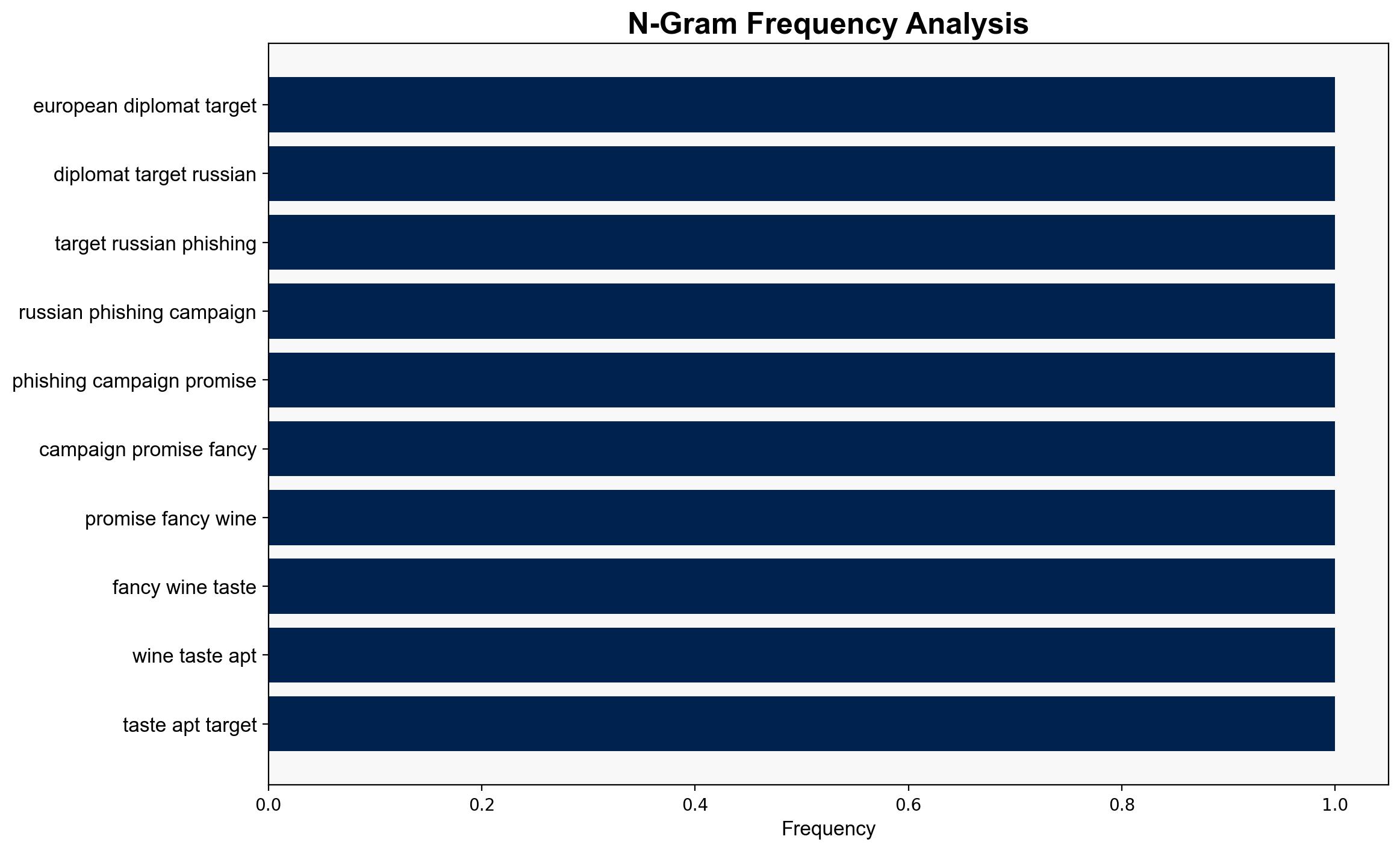European diplomats targeted by Russian phishing campaign promising fancy wine tasting – TechRadar
Published on: 2025-04-17
Intelligence Report: European Diplomats Targeted by Russian Phishing Campaign Promising Fancy Wine Tasting – TechRadar
1. BLUF (Bottom Line Up Front)
A sophisticated phishing campaign orchestrated by the Russian threat actor APT29, also known as Cozy Bear, is targeting European diplomats through invitations to faux wine tasting events. The campaign employs advanced malware, GRAPELOADER and WINELOADER, to infiltrate diplomatic networks. Immediate countermeasures are recommended to mitigate potential breaches.
2. Detailed Analysis
The following structured analytic techniques have been applied:
Analysis of Competing Hypotheses (ACH)
The primary hypothesis is that APT29 is leveraging cultural interests, such as wine tasting, to exploit diplomatic networks for intelligence gathering. Alternative hypotheses, such as financial gain or disruption, are less supported given APT29’s historical focus on espionage.
SWOT Analysis
Strengths: Advanced malware with stealth capabilities; targeted approach exploiting specific cultural interests.
Weaknesses: Potential exposure due to reliance on social engineering tactics.
Opportunities: Increased awareness and training can reduce susceptibility to such attacks.
Threats: Potential for significant intelligence breaches affecting diplomatic relations and security.
Indicators Development
Warning signs include unexpected invitations to cultural events, emails from unfamiliar or spoofed addresses, and unusual network activity indicative of malware presence.
3. Implications and Strategic Risks
The campaign highlights vulnerabilities in diplomatic cybersecurity, with potential repercussions for international relations and security. The use of sophisticated malware suggests a high level of threat persistence, requiring enhanced monitoring and response strategies.
4. Recommendations and Outlook
- Implement comprehensive cybersecurity training focused on phishing awareness for diplomatic staff.
- Enhance email filtering and network monitoring to detect and block suspicious activities.
- Conduct regular security audits and penetration testing to identify and mitigate vulnerabilities.
- Scenario-based projections suggest increased targeting of non-European embassies in Europe, necessitating broader regional cooperation on cybersecurity measures.
5. Key Individuals and Entities
APT29, Check Point Research (CPR), Cozy Bear.





